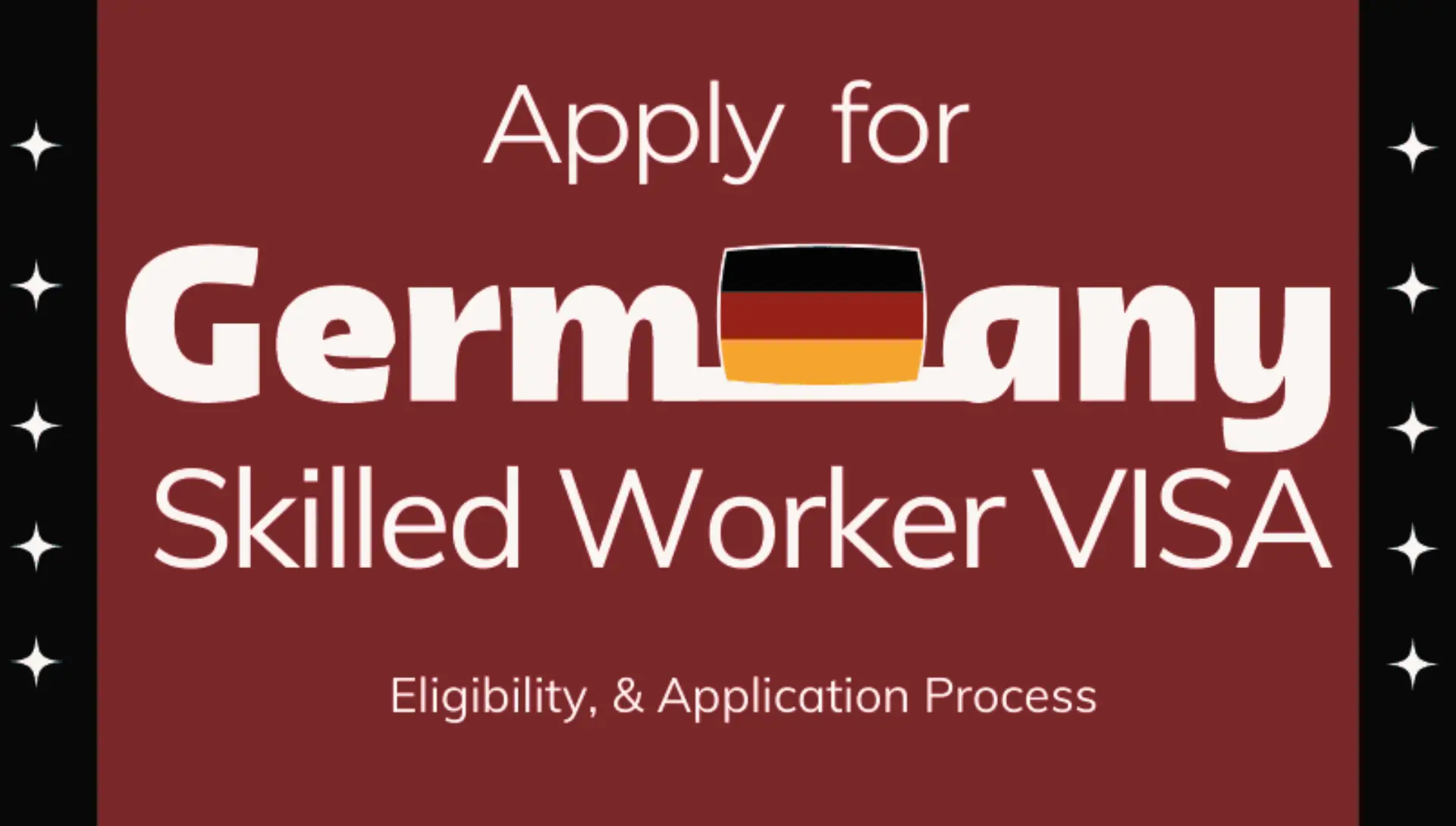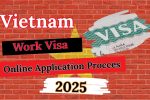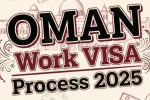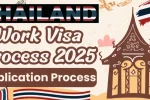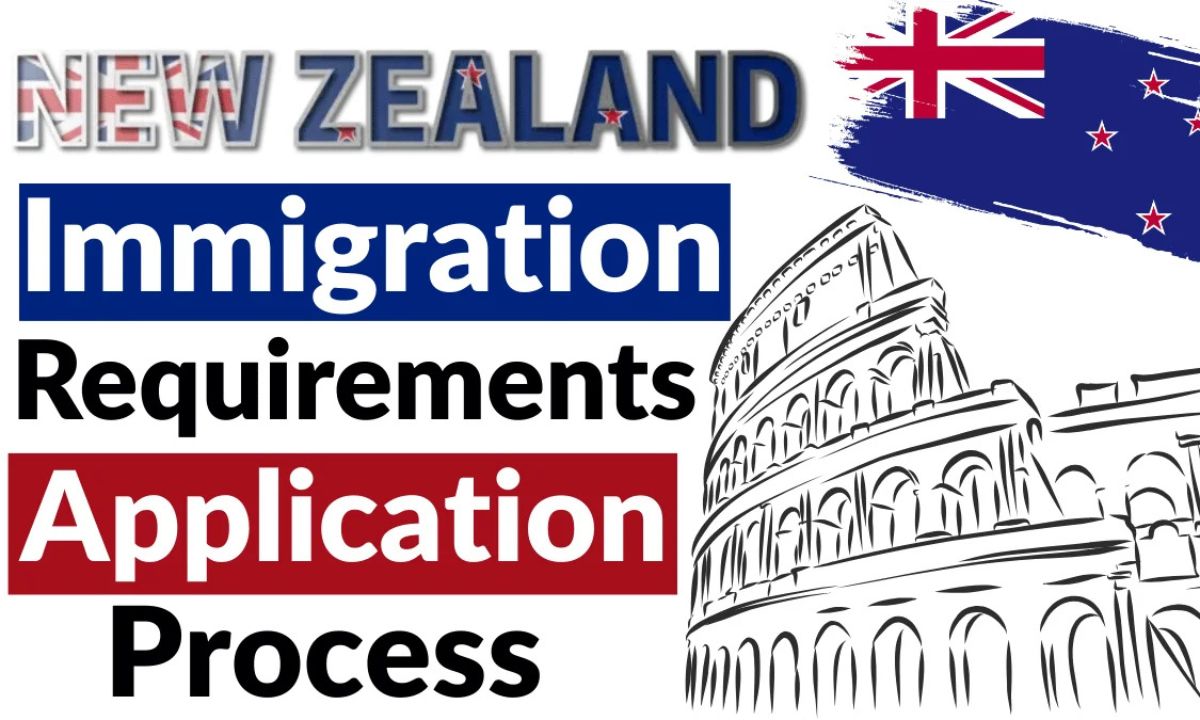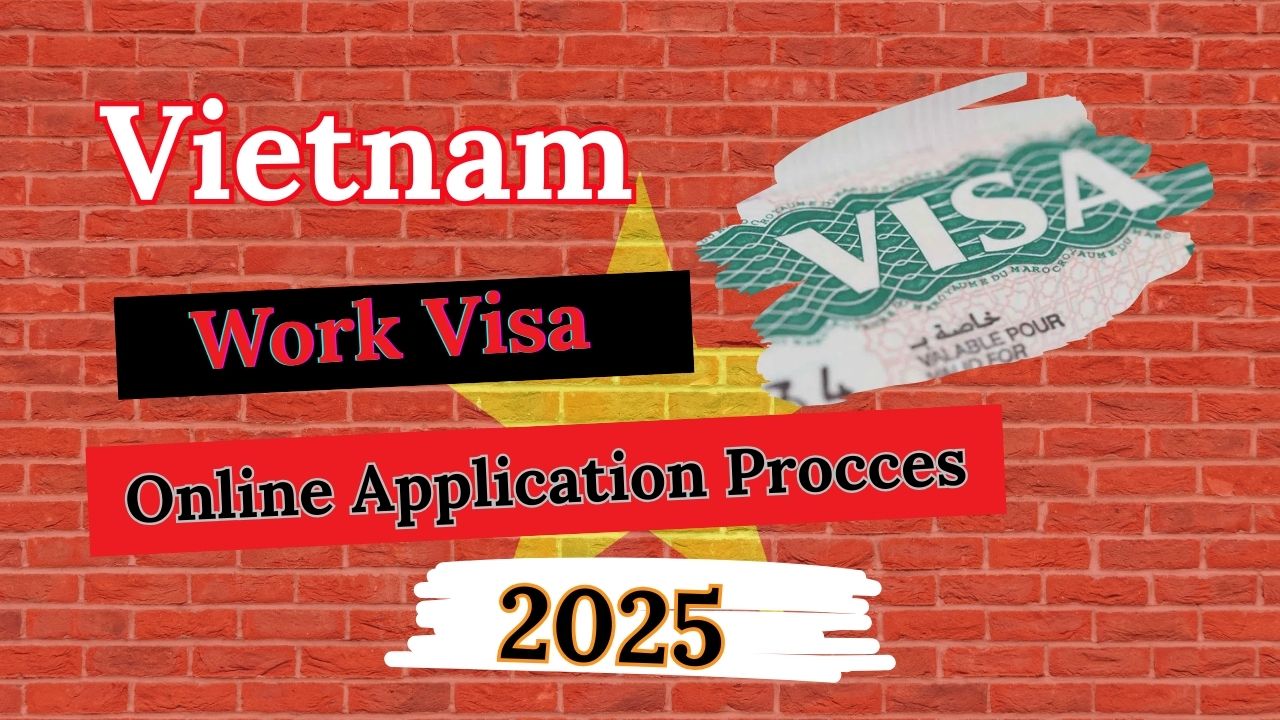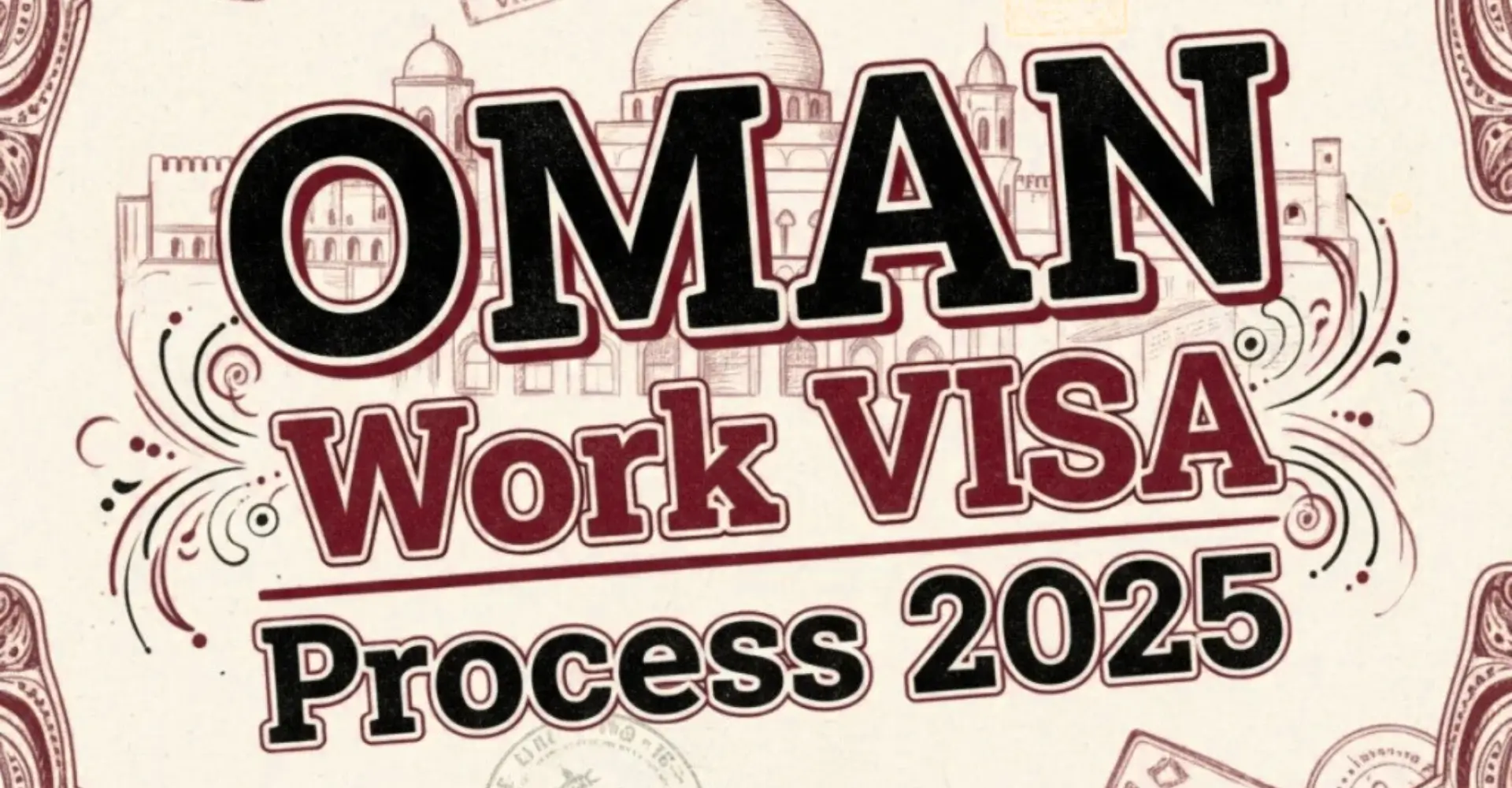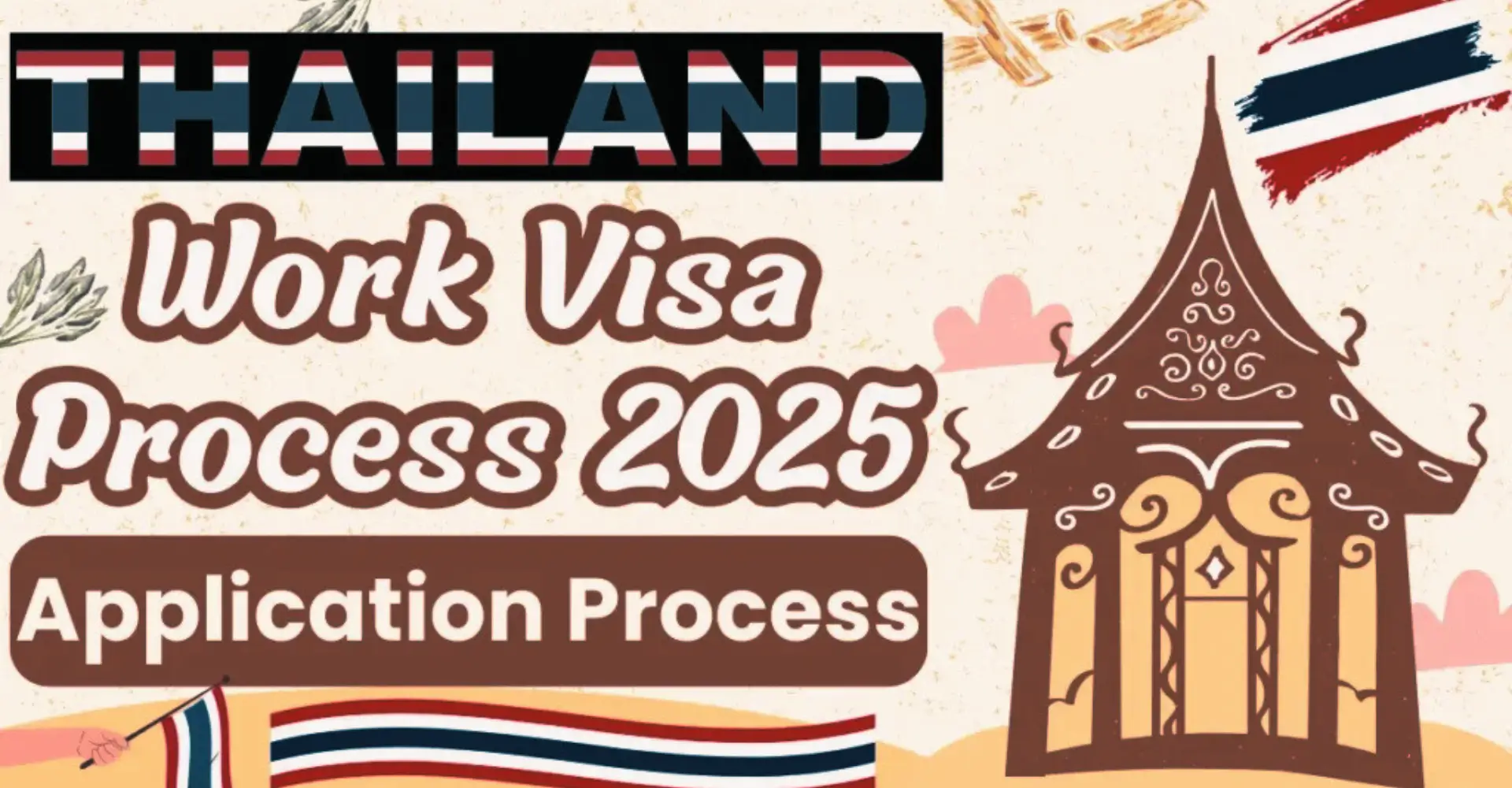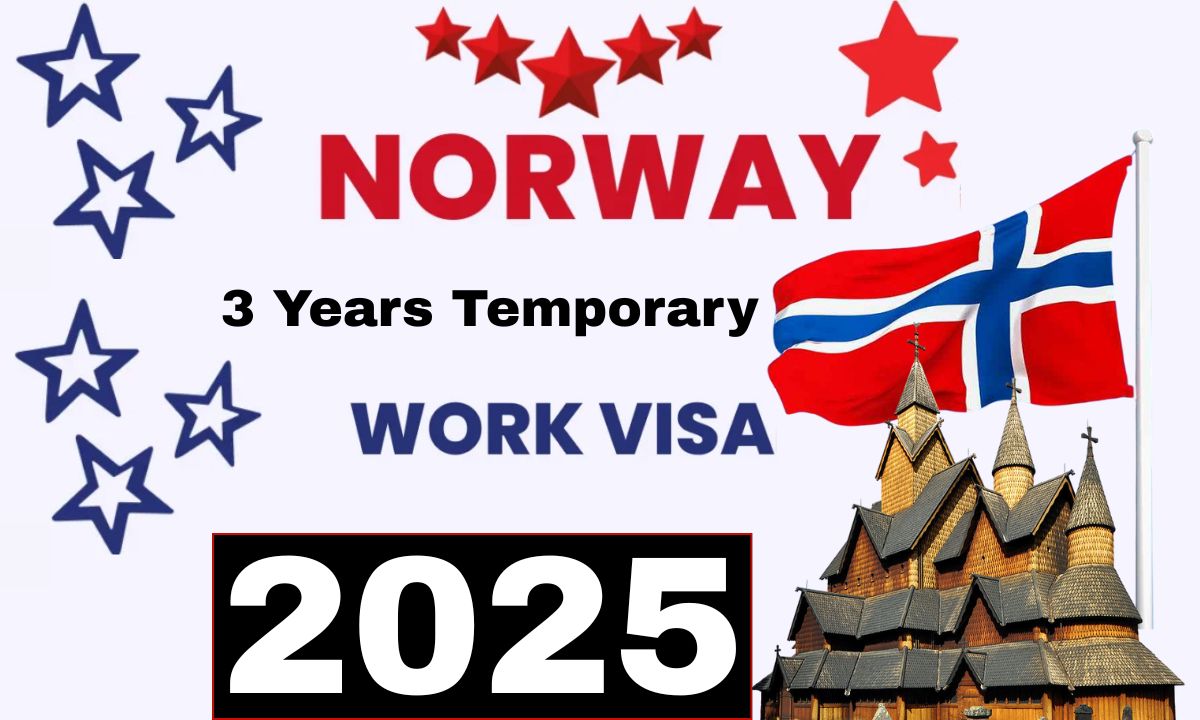Germany Skilled Work Visa Process Oct 2025: Requirements and Application Process. If you’re wondering about the Germany skilled work visa process in October 2025, here’s the good news: yes it’s still very much open for international skilled professionals, and recent changes have made things smoother. We’ll break down exactly what you need to know to apply confidently.
What is the Germany Skilled Work Visa?
The “skilled work visa” for Germany enables non-EU / non-EEA nationals to come to Germany and work in a qualified occupation, provided they meet certain criteria (qualifications, job offer, etc). It’s part of Germany’s strategy to bring in talent to meet labour shortages in sectors such as engineering, healthcare, IT, construction and manufacturing.
In October 2025, the process is influenced by recent immigration law reforms (for example the original Skilled Immigration Act and newer provisions) which means you’ll find some updated requirements and pathways.
Why Germany? Key Appeal for Skilled Workers
- Strong economy with high demand for skilled labour in multiple sectors.
- Title of residence that can convert into long-term settlement, and potential route to citizenship.
- Good social security, healthcare, and family reunification options once you’re in.
- More favourable immigration pathways compared to some other countries, especially for non-EU skilled workers.
Eligibility Requirements (Oct 2025)
Here are the main criteria you must satisfy before applying for the Germany skilled work visa:
Qualification & Job Offer
- You must hold either a recognised academic degree or a vocational qualification (at least 2 years) that is recognised in Germany.
- You must have a concrete job offer or employment contract in Germany in a qualified occupation that matches your qualification.
- Working conditions (salary, terms) should be comparable to those of German domestic workers.
Recognition of Foreign Qualification
- If your degree or qualification was obtained abroad, it needs to be recognised in Germany (via the database “Anabin” or other competent authority) to show equivalence.
- For regulated professions (medical doctor, engineer, teacher etc) you may need a practice licence from the German authority in that field.
Other Important Requirements
- Valid passport (minimum two blank pages etc) and proof of identity.
- Health insurance cover in Germany.
- Sufficient funds to support yourself until your first salary (especially if you arrive before starting).
- No threat to public safety, clean criminal record.
- In some cases (depending on age, salary) extra condition: e.g., if you are over 45 you may need a private pension scheme.
Language Skills & Additional Pathways
- While German language skills are often not strictly required for many “qualified work” cases, they can help.
- There is also the newer “Opportunity Card” route (job-seeker type) for skilled workers who do not yet have a job offer, launched June 2024 – you must meet certain points criteria (qualification, language, age, etc).
Required Documents – Full Checklist
Here is a detailed list of documents you generally must prepare for the Germany skilled work visa (Oct 2025). Requirements may vary slightly by German mission in your country.
| Document | Notes |
|---|---|
| Valid passport (minimum 6 months validity, 2 blank pages) | Bring originals + copies. |
| Completed visa application form (national visa for employment) | Fill accurately. |
| Recent biometric passport-size photographs | As per specifications. |
| Job offer or employment contract from German employer | Must clearly show the job, salary, and conditions. |
| Proof of recognised qualification / degree / vocational certificate | Might include transcript, diploma, recognised equivalence certificate. |
| CV / resume showing professional experience | Especially for vocational qualification route. |
| Proof of accommodation in Germany | Lease or confirmation from employer. |
| Health insurance cover | German statutory or equivalent private coverage. |
| Proof of sufficient financial means | Bank statements, salary guarantee. |
| For non-German documents: certified translations into German | Many missions require translation. |
Tip: Keep extra copies, and make sure the translations are done by a certified translator where required.
Step-by-Step Application Process (Oct 2025)
Here’s a streamlined sequence of how you apply for the Germany skilled work visa in October 2025.
Step 1 – Get Qualification Recognised
Before submitting visa application, check whether your foreign degree or vocational qualification is recognised in Germany (via Anabin or ZAB). This step ensures you qualify as a “skilled worker”.
Step 2 – Secure a Job Offer
You must obtain a firm employment contract or job offer from a German employer specifying job title, salary, etc. Without this you cannot usually apply.
Step 3 – Collect and Translate Documents
Gather all required documents (see checklist above). Translate into German where needed, ensure you have both originals and copies ready.
Step 4 – Complete the Application Form
Fill in the German national visa application (often “Form for stay for employment”). Make sure personal data, job details and qualifications are correctly entered.
Step 5 – Book Appointment at German Mission
Visit the website of the respective German embassy or consulate in your country, book an appointment for the visa submission. In many places they now use an online “Consular Services Portal”.
Step 6 – Attend Interview & Submit Application
On appointment day, go in person with all documents, pay the visa fee, present biometrics/photos and attend an interview if required. Be prepared to answer questions about your qualification, job in Germany, salary, motivation, etc.
Step 7 – Wait for Processing
Processing times vary. Many missions suggest 6–12 weeks, though some cases take longer, especially regulated professions.
Step 8 – Receive Visa Decision
If approved, you’ll receive a visa sticker or decision letter. If rejected, you may appeal or re-apply (with stronger documentation, perhaps).
Step 9 – Travel to Germany & Register Locally
Once you arrive in Germany, you must register your residence (Melde-amt) and then apply for a residence permit at the local Foreigners’ Authority (Ausländerbehörde).
Step 10 – Start Working & Plan for Extension or Settlement
You start your job as per contract. The visa/residence permit period is often tied to your employment contract. You may extend it or later transform into permanent settlement permit if conditions are met.
Visa Duration, Extension & Settlement Options
- Usually the residence permit for skilled workers is issued for the period of the employment contract (commonly up to 4 years) and can be extended if employment continues.
- After working for a certain period and fulfilling conditions (e.g., contributions, German language, secure livelihood) you may apply for a settlement permit (permanent residence).
- For highly qualified workers (e.g., via EU Blue Card) there may be faster tracks to settlement in Germany.
Advantages & Common Challenges
Advantages
- Access to Germany’s strong labour market and economy.
- Legal residence plus work rights in Germany.
- Family reunification possibilities for dependents.
- Pathway to long-term settlement and possibly citizenship.
- Recognition of your qualifications yields global credibility.
Challenges & How to Overcome
| Challenge | Suggestions |
|---|---|
| Qualification not recognised quickly | Start recognition process early; consult Anabin database. |
| Difficulty securing job offer | Network, reach out to German employers, use international job boards. |
| Documentation incomplete or poorly translated | Double-check each requirement; use certified translations. |
| Processing delays | Apply well in advance of planned start date; monitor progress. |
| Language barrier (German) | Even basic German helps in job market and integration. |
Quick Comparison of Key Requirements
| Requirement | What you need | Why it matters |
|---|---|---|
| Recognised Qualification | Degree or vocational certificate equivalent to German standard | Ensures you are eligible as “skilled worker” |
| Job Offer | Signed employment contract in Germany | Without it, visa typically cannot be granted |
| Salary / Terms | Comparable to German workers; may need minimum gross salary | Shows employer is meeting standards |
| Health Insurance | German statutory or valid private scheme | Required for legal residency |
| Financial Means | Enough funds until salary starts | To safeguard you’ll manage in Germany |
| Registration in Germany | Address registration and residency permit after arrival | Mandatory for legal stay & work |
FAQ
Do I need to speak German to apply for the Germany skilled work visa?
Not always. For many “qualified” skilled worker visa routes, German language skills are not mandatory, especially if you have a recognised qualification and job offer in English-permitted environment. However, knowledge of German significantly enhances your job prospects and may support faster settlement.
Can I apply if I don’t yet have a job offer but I’m a skilled professional?
Yes from June 2024 onwards Germany introduced the “Opportunity Card” (job-seeker skilled worker residence title) which allows non-EU nationals to enter Germany without a job offer yet, search for one within 12 months. Basic requirements include recognized qualification or equivalent plus language skills and financial means.
How long does the visa processing take?
Processing time varies by country and mission, but typically 6–12 weeks. Some regulated professions may be longer due to extra checks.
Can my family accompany me to Germany on this visa?
Yes — many skilled worker residence permits allow for family reunification (spouse/children) once you have valid employment and residence status in Germany. Ensure you check specific mission’s rules.
What is the minimum salary requirement?
For highly qualified professionals (for example via EU Blue Card) there are explicit minimum salary thresholds (e.g., circa €48,300 as a guideline in some sources for 2025) depending on profession and region.
Conclusion
The Germany skilled work visa (Oct 2025) offers a compelling pathway for international professionals to build a career and life in one of Europe’s most dynamic economies. The key to success is: recognise your qualification early, secure a job offer, prepare your documentation meticulously, and apply ahead of time.

